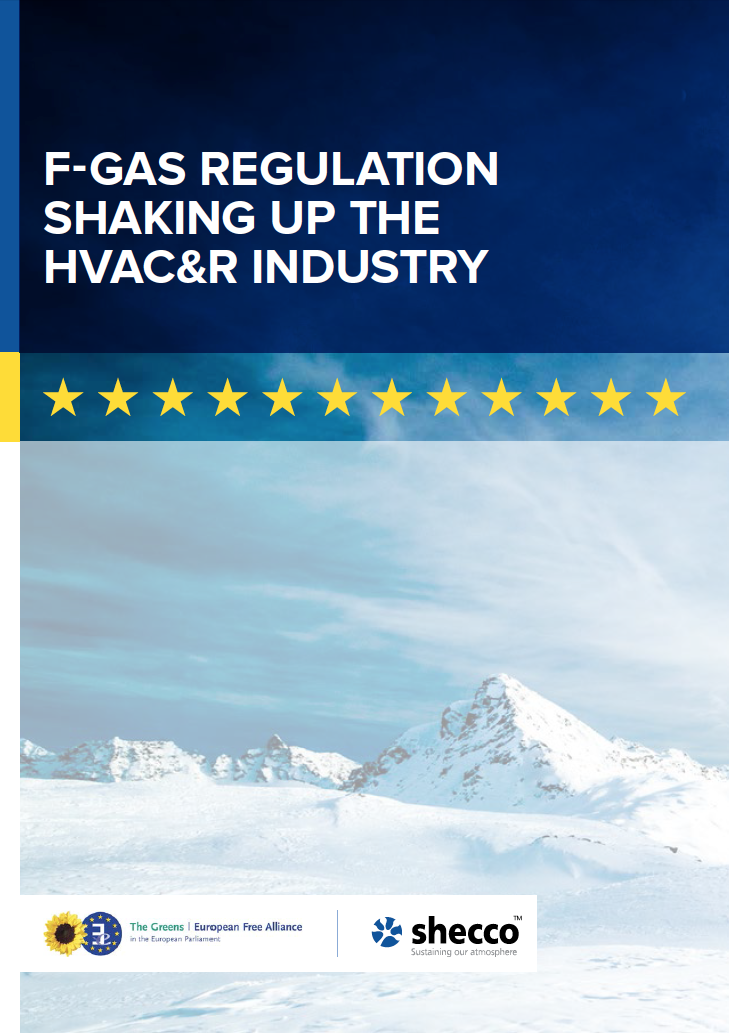Lead authors: Klára Skačanová
Size: 3.26 MB
The new report entitled ‘F-Gas Regulation shaking up the HVAC&R industry’ looks at the impacts that an EU legislative action on HFCs has had in Europe and beyond.
Hydrofluorocarbons (HFCs) are the fastest growing source of greenhouse gases globally, but also one of the areas where climate-friendly, energy-efficient alternatives, such as natural refrigerants, are readily available for a growing in a number of applications. In 2014, the EU took regulatory action to limit the use of these gases through a combination of measures. The EU F-Gas Regulation, which entered into force in 2015, is rapidly changing the face of European industry and influencing markets beyond Europe’s borders.
This report pinpoints some of the key areas in which the Regulation has had the most prominent impact, while highlighting reactions and expectations of a number of industry experts. Commissioned by the Greens in the European Parliament, the study provides qualitative and quantitative analysis of the impact on the European industry and evaluates how the European Regulation has influenced other countries and regions in designing their own policies to curb HFCs.
Main highlights:
- European natural refrigerant suppliers map 2016: With the aim to depict the size of the market for natural refrigerants, the report collected information on the number of European businesses working with HFC-free technology.
- CO2 transcritical supermarket map 2016: shecco conducted a survey among commercial refrigeration system suppliers and retailers in Europe in regard to the number of stores using CO2 transcritical technology. The findings indicate that the number of stores using this cutting-edge HFC-free technology has tripled over the last three years.
- Key aspects that the F-Gas Regulation is having an impact on: The report investigated how the F-Gas Regulation has affected a number of aspects, such as commercial availability of HFC-free equipment, shift in R&D investments, cost of equipment and training & awareness. The findings indicate that the industry is transitioning to natural refrigerants much faster in the sectors where the Regulation has introduced ambitious sector-specific bans on HFCs.

Klára Skačanová view profile
- Position:
- Deputy Manager, Market Development
- Organisation:
- shecco
Klara holds a Masters' degree in International Relations from the University of Economics in Bratislava, Slovakia and has a background in European studies and international economic relations. Before joining shecco, she worked at the European Commission and a small business association. At her current position, Klara coordinates team activities in shecco's Business Development department, including for market research, public affairs and international project services. She is an expert on following legislative developments with an impact on the heating and cooling industry at national, European and international level, and informs decision-makers about the latest trends in the field of natural refrigerants.


